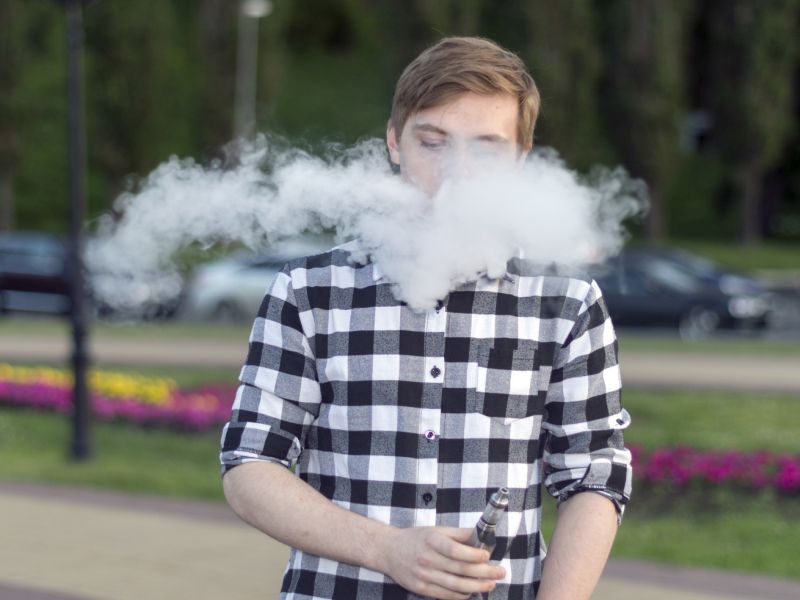
Such flavors are fueling the teen vaping epidemic in the United States, according to the University of Southern California (USC) researchers.
Already, the Trump administration and several states have called for bans on fruit- and dessert-flavored e-cigarettes. In the face of that increasing pressure, Juul announced earlier this month that it will stop selling all fruit or dessert flavors of its e-cigarettes.
In the latest study, researchers tracked 478 Los Angeles-area teens who vaped, surveying them every six months from grade 10 in the spring of 2015 through grade 12 in 2017. About 9 of 10 teens in the study vaped fruit, candy and other non-traditional flavors.
The researchers found that just over 64% of the teens who used these dessert flavors were still vaping six months later, compared with close to 43% of teens who used only traditional flavors such as tobacco or menthol.
Teens who used fruit, candy and other non-traditional flavors also had heavier e-cigarette use six months later, meaning they took more puffs each time they vaped.
Flavor did not appear to affect the number of days or times that teens vaped, according to the study published online Oct. 28 in the journal Pediatrics.
"While many children try e-cigarettes, not all become regular users. Teens who use e-cigarettes may be more inclined to continue vaping rather than just temporarily experiment with e-cigs," said researcher Adam Leventhal, director of the Institute for Addiction Science at USC.
"Whether or not children continue vaping is important - the longer and more frequently you vape, the more you're exposing yourself to toxins in e-cigarette aerosol and put yourself at risk for nicotine addiction," Leventhal said in a university news release.
"Regulations that reduce youth exposure to flavored e-cigarettes may aid in preventing young people who try e-cigarettes from becoming long-term e-cig users, and also from inhaling more of aerosol into their lungs," he added.
"Regulations like these (bans) could also encourage the millions of U.S. adolescents who already use e-cigarettes to quit vaping, especially if they can no longer access e-cigs in the flavors they like," Leventhal said.
Source: University of Southern California, news release, Oct. 28, 2019.







0 Comments